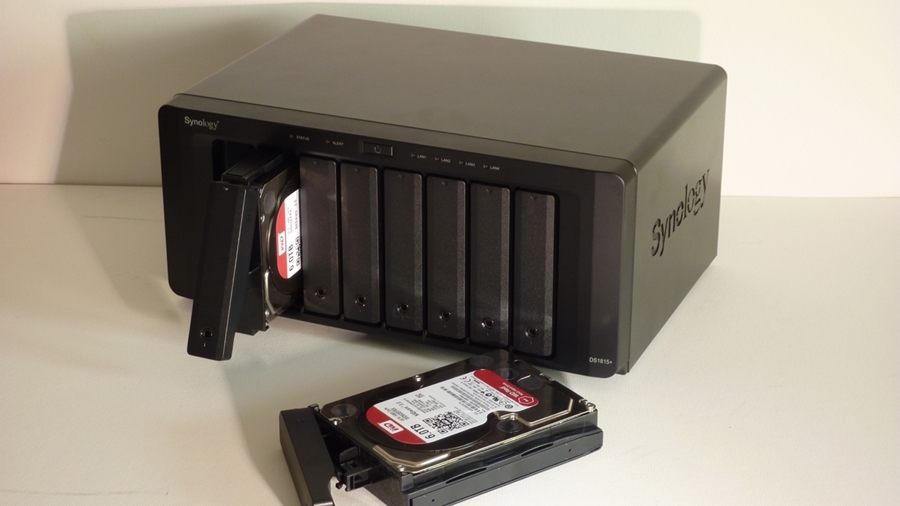Could a humble NAS box be the future of home automation?
Think server-for-dummies

NAS specialist Synology provided TechRadar Pro with a pretty interesting narrative explaining why a simple storage box could well be at the centre of the automated home of 2020.
"Give it five to 10 years, and the NAS (network attached storage) will be the future of home automation," James Howe, technical consultant for the Taiwan-based company told me during an interview.
New technology, more powerful hardware and a changing market have created new opportunities for companies, who like Synology, want to accelerate the demise of the desktop computer.
Docker shocker
One genuinely surprising innovation was the addition of Docker to Synology's NAS software, DSM 5.2. Docker is one of those under-the-radar technologies that's understood by a handful of geeks and has the potential of radically changing the way business is done.
Docker is an open source engine that allows developers to run almost any application almost anywhere. It replaces the hypervisor and the guest OS, and such is its growing importance that it has received the backing of IBM, Microsoft and Google already.
Now what that means for the humble NAS is you can get that lightweight virtualisation application to run one of the thousands of containers created by developers, on a Synology NAS box that's compatible with DSM 5.2. Think of it as the ultimate app store for developers.
Not only can you install whole operating systems like Ubuntu or CentOS but you can also run your own file server, WordPress site, a Minecraft server and so much more.
Are you a pro? Subscribe to our newsletter
Sign up to the TechRadar Pro newsletter to get all the top news, opinion, features and guidance your business needs to succeed!
One could envision having, in the near future, a marketplace on the NAS box that would allow you to manage your fridge, your lights and much more besides.
Obviously, nothing prevents others from emulating Synology and getting Docker to run on their products. A NAS box is, after all, merely a single-purpose computer with a processor, system memory and a hard disk drive (or three) – adding to a list of features to make it a more compelling buy doesn't have to add any extra levels of complexity thanks to Docker.
Router and NAS combo?
"You can run Docker from a NAS, you can't from a router," Howe noted as we moved the discussion to the tussle between routers and NASes, the two main general purpose devices in the household that control connectivity and storage respectively.
A merger between the two won't happen, he said, mentioning the fact that a RouterNAS would only add to the complexity in case of an issue. It's better to have two fail-points, which is why he believes the two will stay separate.
Oddly enough, Synology will launch a router towards the end of the year. When asked about the decision to do so, James told me that it was part of a strategy to deliver more peripherals with the NAS at the core (video cameras are part of that mix, as well).
The router, more specifically, was designed based on customer requests. It will be a "dumb appendage" for a Synology NAS and in the long run, the two will be seamlessly controlled by the same user interface (you have two separate UIs at the moment).
It offers 802.11ac and two interesting features – an SD card reader and a toggle button that allows you to switch the Wi-Fi off.
Making the NAS box the central server for everything is a logical next step for the product, James argued, noting that the move will make it easier to add new functionalities with a fully connected NAS being the future.

Désiré has been musing and writing about technology during a career spanning four decades. He dabbled in website builders and web hosting when DHTML and frames were in vogue and started narrating about the impact of technology on society just before the start of the Y2K hysteria at the turn of the last millennium.